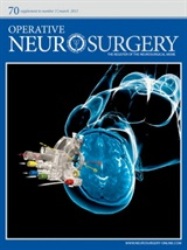Researchers from German universities have developed an implantable sensor device capable of monitoring the pressure within the skull.
 Operative Neurosurgery March issue
Operative Neurosurgery March issue
The pilot study by Stefan Welschehold, Eva Schmalhausen, Philippe Dodier, Sonja Vulcu,Wolfgang Wagner, Joachim Oertel and Christoph A Tschan titled “First Clinical Results With a New Telemetric Intracranial Pressure-Monitoring System” has been published in Operative Neurosurgery, a supplement to Neurosurgery published by Lippincott Williams & Wilkins. The study details the clinical experiences associated with the telemetric ICP monitoring device along with the methodology and results of the study.
The Telemetric ICP Monitor is a safe and effective device for long-term measurement of intracranial pressure (ICP) and can also be used for home monitoring. High levels of ICP can cause not only brain damage but also death. The monitoring system was evaluated by the researchers by monitoring ICP of ten patients who had undergone brain surgery earlier. The telemetric ICP monitoring device features an inch-long miniature probe that is attached to a transducer. The probe tip is surgically inserted into the brain through a tiny hole in the skull and the transducer is positioned under the scalp.
The recording device needs to be held over the transducer and the implanted sensor to obtain the ICP values. The advantage of the recording device is that patients can move around as the device is battery powered. Furthermore, the ICP values can be measured even if the patient is bandaged. During the evaluation, some of the patients were monitored at home after being discharged for a period of six months. The only limitation determined during the study was that the data had to be transferred to a computer every three weeks in order to clear space for further monitoring.
Eight patients continued ICP monitoring at home after being discharged from the hospital. Monitoring continued for up to six months. The main limitation was that the recording device had to be connected to a computer at least once every three weeks to clear space for data storage. In three of the patients, there was recurrent or persistent increase in ICP values. The doctors were alerted and the patients underwent additional surgery to resolve the cause of the increasing pressure.